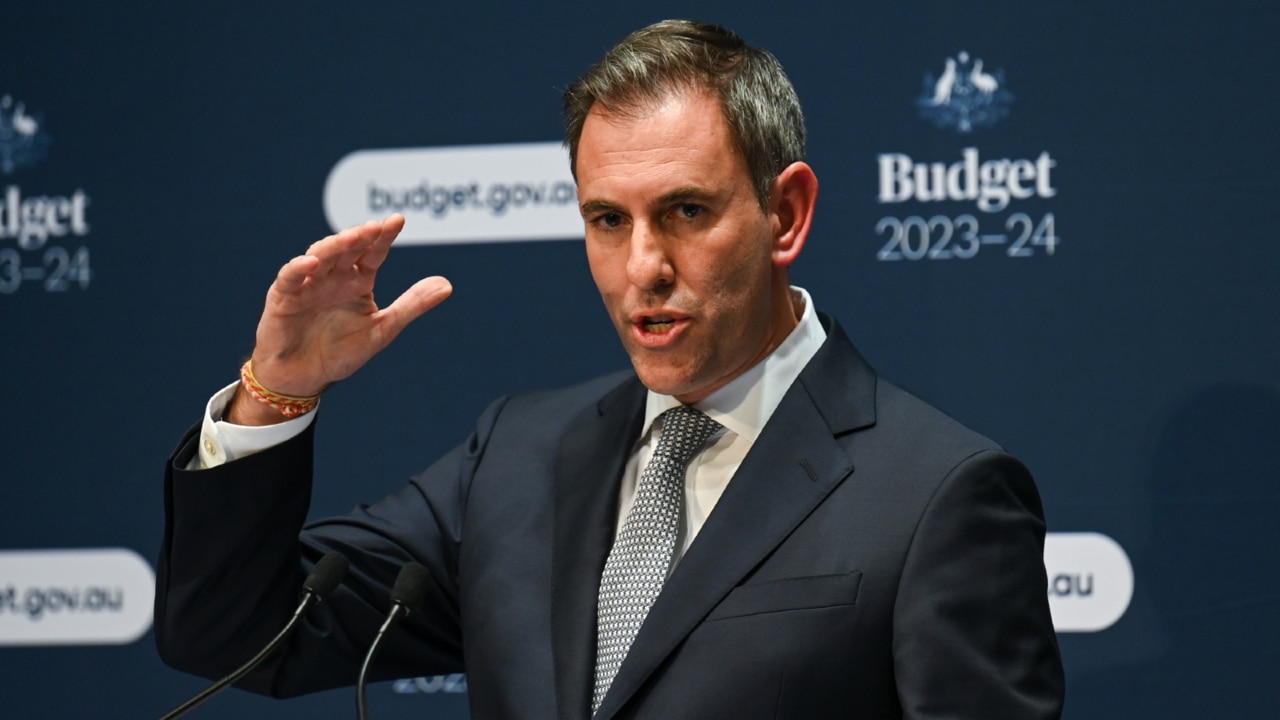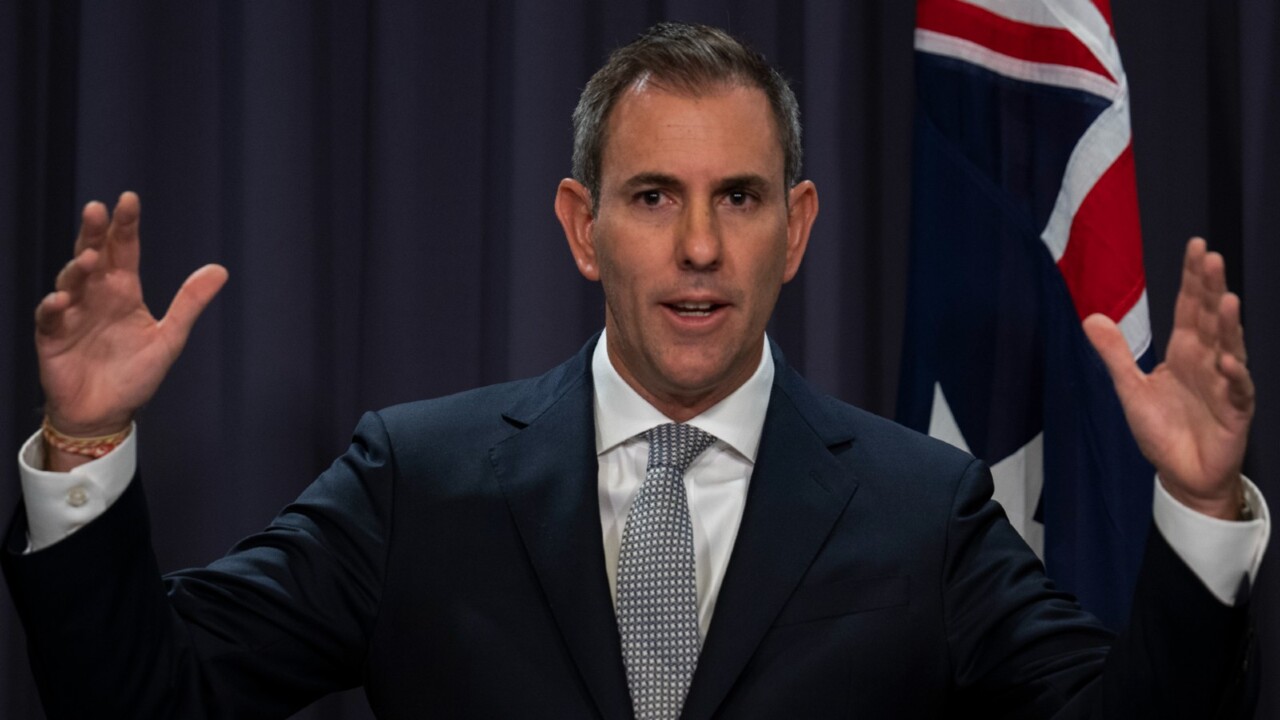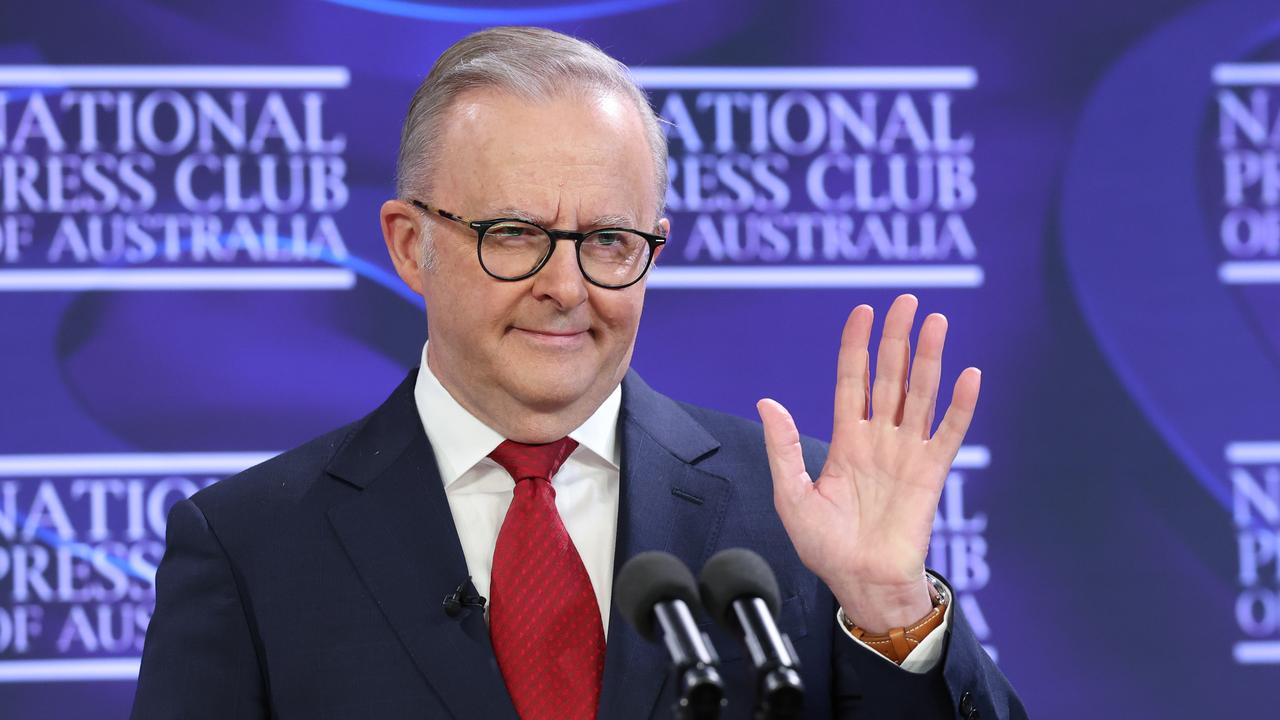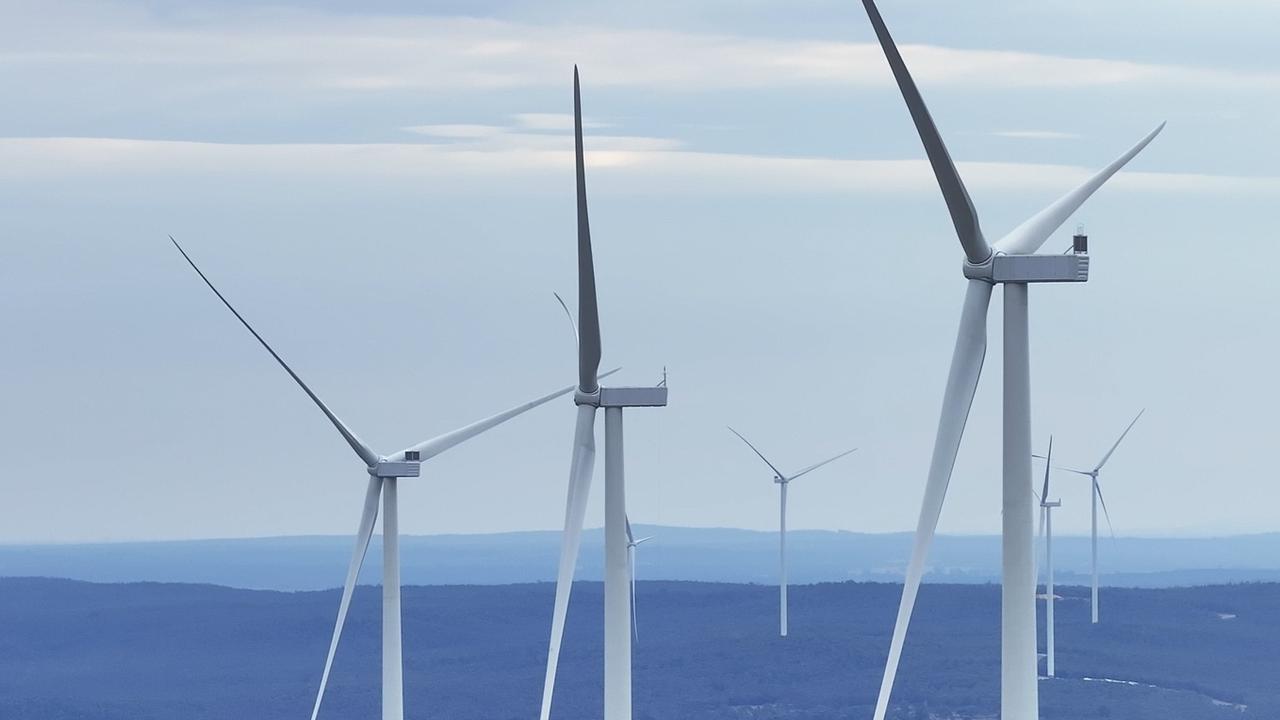‘Panic and disloyalty’: John Howard blasts Jim Chalmers over Reserve Bank spat
John Howard has accused the federal Treasurer of panicking at the first whiff of economic grapeshot and desperately and disloyally seeking to shift the blame for high interest rates on to RBA governor Michele Bullock.

John Howard has accused Jim Chalmers of panicking at the first whiff of economic grapeshot and desperately and disloyally seeking to shift the blame for high interest rates on to Reserve Bank governor Michele Bullock.
The intervention from the former prime minister comes with national accounts on Wednesday expected to show anaemic growth in the June quarter despite government spending being forecast to hit a record 22.5 per cent of gross domestic product.
That figure – predicted by Westpac – would surpass the previous record of 22.4 per cent reached in the 2020 June quarter when governments pumped billions of dollars in taxpayer-funded support into the economy ravaged by pandemic-induced lockdowns.
Writing in The Australian, Mr Howard backs the performance of Ms Bullock and declares the Treasurer is hindering the inflation fight because he has “lost control of expenditure”. A former Liberal treasurer himself in the 1980s as well as prime minister for almost 12 years, Mr Howard says a good relationship between the treasurer and the Reserve Bank governor is “crucial to the smooth stewardship of the economy” but can be “challenging”
The level of interest rates is not under the personal control of either person, he adds.
Mr Howard writes that Ms Bullock, who was appointed by the Albanese government just 11 months ago, has demonstrated “the wisdom of her appointment” and has acted on interest rates according to the economic conditions.
“Since being in the chair, the level of inflation, as well as government spending and other pressures, have left Michele Bullock and her colleagues no alternative other than that it has pursued in relation to interest rates,” Mr Howard says.

In relation to the political campaign launched by the Treasurer and other ministers in recent days saying high interest rates are “smashing the economy” and that the RBA should not “go too far” in keeping interest rates higher, Mr Howard says: “She (Ms Bullock) does not deserve the Chalmers broadside”.
“Chalmers’ clumsy attempt to shift blame for the painful consequences of high interest rates has badly backfired,” he says.
However, former RBA governor Bernie Fraser, who led the central bank from 1989 to 1996 under the Hawke and Keating governments, did not take issue with Dr Chalmers’ comments.
“I think some people are making a mountain out of a molehill if they believe that what the Treasurer has said in the last few days is geared towards putting pressure on the bank,” Mr Fraser said.
He said the central bank had lost credibility and should be looking to cut rates earlier than the timetable outlined by Ms Bullock last month, when she pushed back the prospect of relief to mortgage holders until next year.
“These pressures on inflation are beyond the reach of interest rates … it doesn’t make any sense to me to be continuing to hammer away when that’s not going to do anything short term to bring inflation back,” he said. “It will certainly do more to affect the job security and employment of a lot of people in the community who are already suffering.”
With Dr Chalmers rejecting claims from economists and the RBA that big-spending state and federal budgets were contributing to inflation pressures, figures released on Tuesday showed public consumption – a proxy for government spending – jumped by 1.4 per cent in the three months to June, to be 4.7 per cent higher through the year.

Driving the spending across the quarter was a 1.7 per cent increase in federal spending, while the rise in state government consumption was more modest at 1.1 per cent.
Excluding defence expenditure, growth in federal spending was even stronger at 2.3 per cent, reflecting increased outlays across health and aged care, pensions, jobseeker payments, public servant salaries, cost-of-living relief and the NDIS.
Westpac senior economist Pat Bustamante said: “Public consumption (is) by far the most rapidly growing segment of the economy in the June quarter.”
Taking economists by surprise, the growth in public demand is expected to contribute 0.4 percentage points to Wednesday’s highly anticipated GDP growth figure.
In stark contrast, private demand remains extremely weak, with anaemic household consumption now spilling into the business sector which is facing weaker profits.
ABS data released on Tuesday showed Australia’s current account deficit widened to $10.9bn in the June quarter, its largest since 2018, amid plummeting prices for coal and iron ore.
Despite the decline, the ABS said net exports would still add 0.2 percentage points to Wednesday’s GDP figures as services export volumes surged by 5.6 per cent on the back of a flood of spending by foreign students.
Following the mixed bag of government spending and current account figures, economists fine-tuned their GDP forecasts to tip a 0.2 per cent increase in the June quarter, bringing annual growth to just 0.9 per cent.
On Tuesday, Dr Chalmers stressed Labor’s cost-of-living spending was not working against the central bank’s efforts to tame inflation and that he maintained a good working relationship with Ms Bullock.
“The Reserve Bank and the government have got the same objective here: we’re trying to get inflation down in our economy, that’s our primary focus,” Dr Chalmers told the Nine Network.
He denied he was trying to pressure the central bank to cut interest rates. “I think it would be a bit strange, frankly, if the Treasurer of Australia couldn’t point to the sorts of things which are slowing our economy,” he said.
Mr Howard writes that Dr Chalmers’ RBA attack “had a tone of desperation about it”.
“Interest rates are determined by domestic and international economic conditions, not by personal caprice of the Treasurer or the board of the Reserve Bank,” Mr Howard says.
“It is a well-accepted economic belief that if government spending is too high, that exerts upward pressure on interest rates.
“There is little argument that the Albanese government has lost control of expenditure.
“Despite any wordy protestations to the contrary, Chalmers has tried to shift the blame for the pain experienced by borrowers at present onto the shoulders of his own anointed bank governor. It is not only an unworthy deed, but it is also transparent.”
Mr Howard says the agreement between then treasurer Peter Costello and RBA governor Ian Macfarlane that the Reserve Bank would independently set interest rates “gave confidence that interest rates would be set reflective of economic conditions, rather than immediate political considerations”.
Mr Howard says Mr Macfarlane’s successor Glenn Stevens, demonstrated his independence “by raising interest rates on the eve of the 2007 election, won convincingly by Kevin Rudd”.
“Stevens’ decision was uncomfortable for me and other members of my government but not unexpected,” he says.
Mr Howard also refers to his own losing “war” with the RBA just before the Fraser government was defeated in 1983 over trying to release statutory deposits for more home loans which he suggests was evidence that at times treasurers had to put up cabinet decisions with which the RBA would disagree.
But he says: “By his opportunistic and quite disloyal remarks the Treasurer has diminished himself, not Michele Bullock”.




To join the conversation, please log in. Don't have an account? Register
Join the conversation, you are commenting as Logout